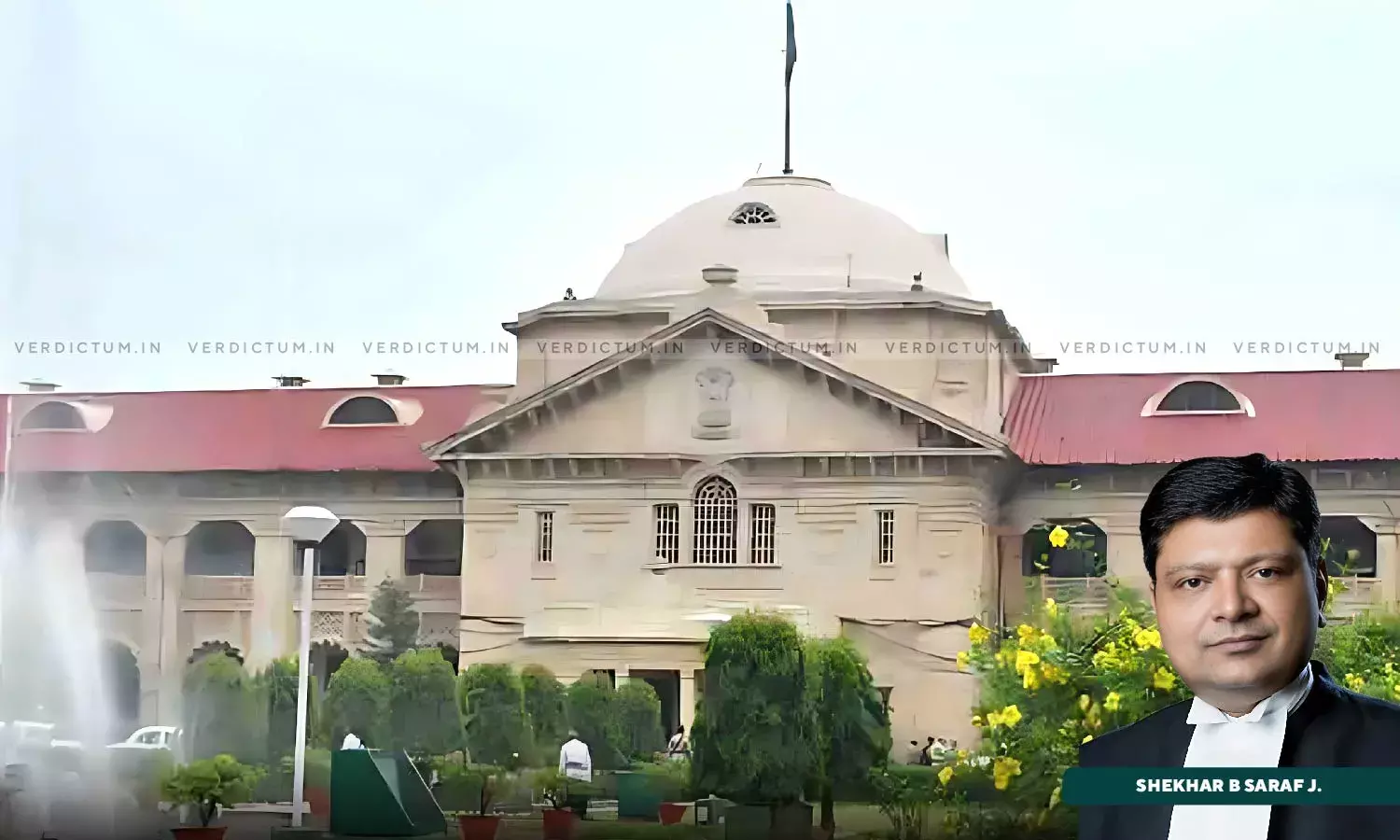S. 31(5) A&C Act| Party’s Actual Awareness About Arbitration Award Has To Be Considered Even If He Didn't Receive Signed Copy: Allahabad HC
The Allahabad High Court observed that, for the purpose of Section 31(5) of Arbitration and Conciliation Act, the party’s actual awareness about the Arbitration award and his actions have to be considered, even if a signed copy was not formally received.
The Court observed thus in an appeal filed under Section 37 of the Actagainst the judgment and order of the District Judge by which an application was dismissed under Section 34 of A&C Act.
A Single Bench of Justice Shekhar B. Saraf remarked, “Courts have often highlighted that a purely literal interpretation, ignoring the practical realities and broader legislative objectives, can lead to unjust outcomes. A strict literal interpretation could enable parties to delay or obstruct the arbitration process by claiming non-receipt of a signed copy despite being aware of the award's contents and having acted upon it. The legislative intent behind Section 31(5) of the Arbitration Act is to ensure that parties are adequately informed about the award to take necessary legal actions within prescribed timelines. Therefore, an interpretation that considers the party's actual awareness and actions, even if a signed copy was not formally received, aligns better with the legislative intent and the principles of justice and equity.”
Advocate Pranjal Mehrotra appeared on behalf of the appellant while Advocate Shalini Goel appeared on behalf of the respondents.
In this case, a notification was issued under Section 3A of the National Highways Act, 1956 (NHAI Act) on December 4, 2009 followed by a declaration dated under Section 3D of the NHAI Act in respect of a land. Thereafter, the Competent Authority declared the award determining the amount of compensation in respect of the land in question under Section 3G of the NHAI Act.
Against the award of the Competent Authority, the respondents filed a petition under Section 3G(5) of the NHAI Act before the Arbitrator and via an award, the matter was remanded to the Competent Authority. The appellant, Bharatiya Rashtriya Rajmarg Pradhikaran filed an application under Section 34 of A&C Act against the award which was rejected vide the judgment and order. Against the same, the appellant filed the instant application under Section 37 of the Arbitration Act before the High Court.
The High Court in the above regard said, “A party which has knowledge of the contents of an arbitral award, understands its implications, and begins to act upon it demonstrates practical acknowledgment of the arbitral award. This behaviour effectively nullifies any subsequent claims of non-receipt of a signed copy, as the party has already engaged with the award substantively. Courts have often observed that practical engagement with an arbitral award signifies awareness, which should trigger the timelines for any further legal action. The emphasis on acting upon the award is crucial. For instance, if a party begins to comply with the award's directives or uses the award's findings in subsequent actions, it indicates a de facto acceptance of the award. Such actions provide clear evidence that the party has understood and accepted the award's contents, thus making any later claims of non-receipt appear disingenuous.”
The Court noted that the doctrine of estoppel is vital in maintaining procedural fairness and integrity within the arbitration process and the same prevents a party from taking inconsistent positions that would harm the opposing party or undermine the legal process's credibility. It added that in arbitration, this doctrine ensures that a party cannot claim ignorance or non-receipt of an award after having acted upon it and the same operates to uphold fairness by ensuring that parties cannot benefit from their own wrongdoing or negligence.
“If a party, aware of the award, delays raising objections or seeks to take advantage of procedural nuances to avoid compliance, estoppel can prevent such tactics. This doctrine aligns with the fundamental principles of justice and equity, ensuring that parties engage with the arbitration process honestly and transparently”, it observed.
Furthermore, the Court noted that the District Judge was justified in dismissing the appellant's application under Section 34 of the Arbitration Act as time-barred and the appellant's awareness of the award and its subsequent actions negate the claim of non-receipt of a signed copy.
“The principle of estoppel further prevents the appellant from contradicting their previous acknowledgment of the award. A balanced interpretation of Section 31(5) of the Arbitration Act supports the Learned District Judge’s decision, ensuring procedural fairness and upholding the Arbitration Act's objectives of expeditious dispute resolution. The appellant's claim of patent illegality in the Learned District Judge’s judgment lacks substance. The decision to dismiss the Section 34 application as time-barred was grounded in the appellant's evident awareness of the award and their subsequent actions”, it concluded.
Accordingly, the High Court dismissed the appeal and upheld the arbitral award.
Cause Title- Bharatiya Rashtriya Rajmarg Pradhikaran v. Neeraj Sharma and Others (Neutral Citation: 2024:AHC:94330)




